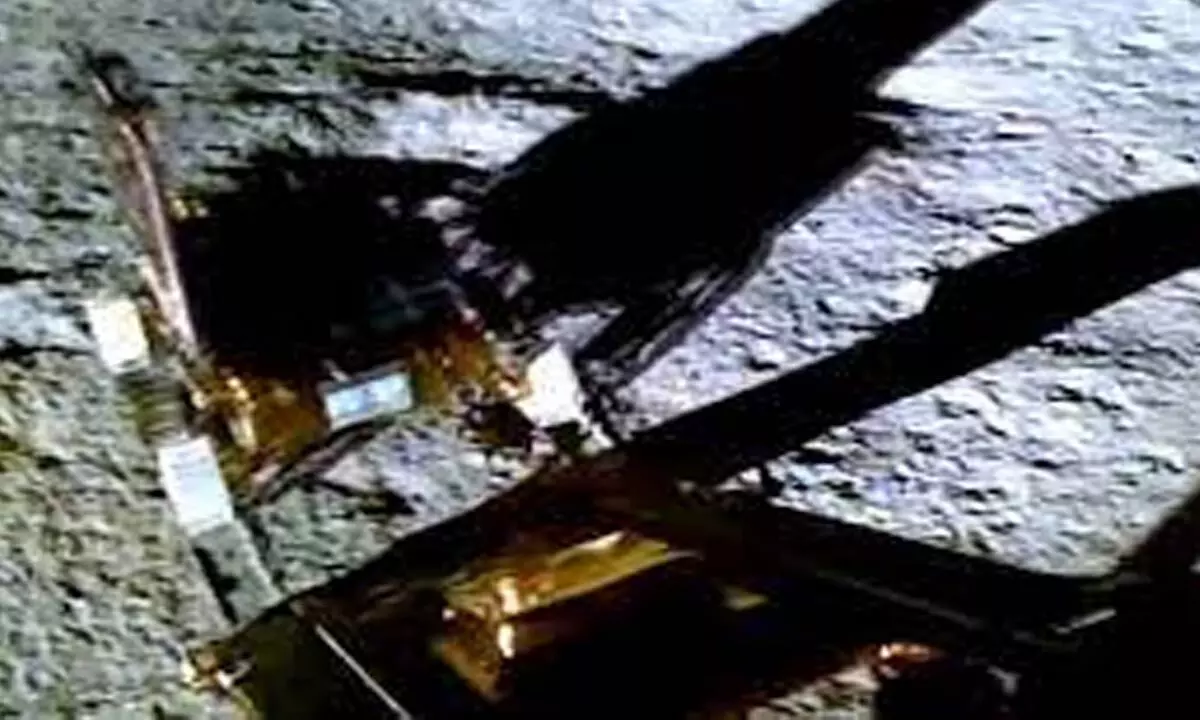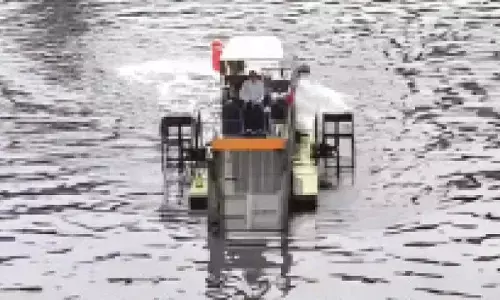ISRO releases breathtaking video of Chandrayaan-3 rover 'Pragyan' rolling down to lunar surface from lander
Share :

ISRO on Friday released a breathtaking video of the Chandrayaan-3 mission's rover 'Pragyan' rolling down from the lander 'Vikram' to the lunar surface as observed by the lander imager camera.
Bengaluru: ISRO on Friday released a breathtaking video of the Chandrayaan-3 mission's rover 'Pragyan' rolling down from the lander 'Vikram' to the lunar surface as observed by the lander imager camera. "... and here is how the Chandrayaan-3 Rover ramped down from the Lander to the Lunar surface", said the message along with the video posted on 'X' by the national space agency.
ISRO also released the image of the lander taken by Chandrayaan-2's Orbiter High Resolution Camera (OHRC) after it soft-landed on the Moon's surface. "Chandrayaan-3 Mission update: I spy you! Chandrayaan-2 Orbiter photoshoots Chandrayaan-3 Lander! Chandrayaan-2's Orbiter High-Resolution Camera (OHRC) -- the camera with the best resolution anyone currently has around the moon -- spots Chandrayaan-3 Lander after the landing on 23/2ł/23," read the ISRO post.
Chandrayaan-2 Orbiter, launched in 2019, continues to orbit the Moon. The Vikram lander with Pragyan rover in its belly touched down on the Moon's surface "well within the area" identified for the purpose on Wednesday. A few hours after the landing, the 26-kg six-wheeled rover rolled out from the lander's belly. ISRO said on Thursday evening: "All activities are on schedule. All systems are normal. Lander Module payloads ILSA, RAMBHA and ChaSTE are turned ON today. Rover mobility operations have commenced.
SHAPE payload on the Propulsion Module was turned ON on Sunday." India on Wednesday scripted history as its third unmanned Moon mission's lander module made a flawless soft-landing, making it only the fourth country to achieve this feat, and first to reach the uncharted south pole of Earth's only natural satellite.


















